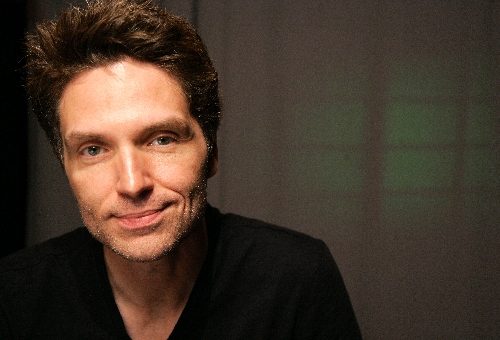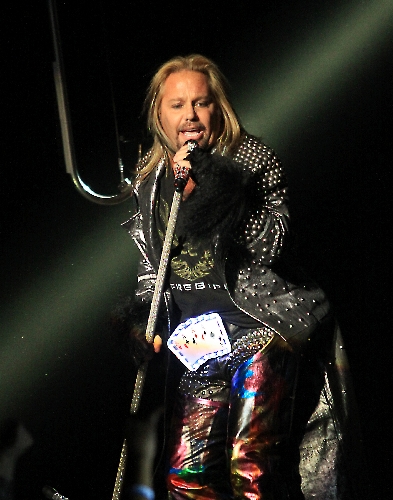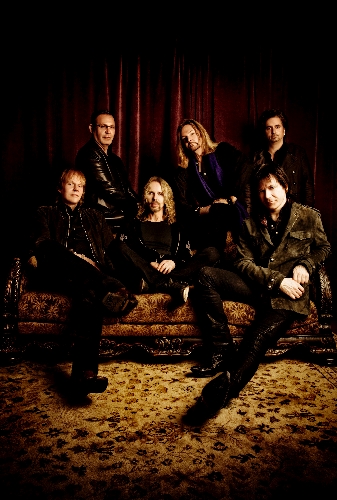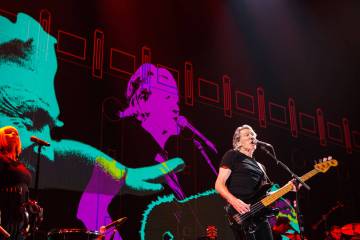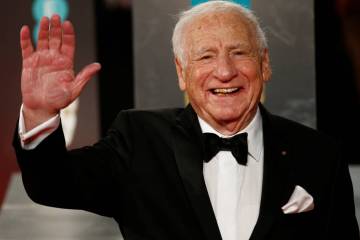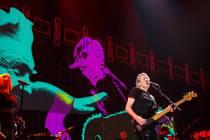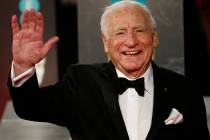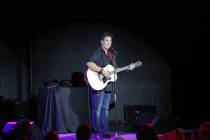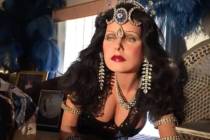Valentine weekend performers shoot arrows through hearts with ballads
As the day of Valentine hearts and flowers approaches, you will again hear it said, "They don't write love songs like they used to."
It's been that way since the standards voiced by Sinatra were threatened by Brits wanting to hold your daughter's hand.
But when today's parents tsk-tsk their teens Perry-ing down to "The One That Got Away" as a sad substitute for sentiment, they will throw back their heads and demonstrate their version of a timeless love song:
A) "Because it's y-e-e-e-w babe, giving me the courage and the strength I need"
B) "I'm on my w-a-a-y-a-yay, home sweet home"
C) "Hold on to the nights, hold on to the m-e-e-m-or-ies"
These are not wimpy ballads. They are power ballads, which is of course how they came to be identified at some point in the '80s. And they are a common denominator for three Valentine-weekend visitors not always linked in the same sentence:
A) Styx, playing today at Green Valley Ranch.
B) Motley Crue, through Feb. 19 -- and yes, that includes a Valentine's show Tuesday -- at the Hard Rock Hotel.
C) Richard Marx, singing with a 20-piece string section Saturday and Sunday at The Orleans.
Crue-heads may argue, "They only had two power ballads. All the others rawked, dude." Or perhaps you know that Richard Marx does other things too, including the co-writing of Keith Urban's "Long Hot Summer."
"My resume looks like 'Sybil,' it's really schizophrenic," he says.
But this the 48-year-old singer-songwriter also understands: "The power of a hit ballad will always obliterate anything else."
DRUMS MEET PEROXIDE
So what's the difference between a plain ol' ballad and a power ballad?
" 'Right Here Waiting' is a ballad, and 'Hold on to the Nights' becomes a power ballad," Marx explains.
" 'Right Here Waiting' never gets big. The dynamics are only vocally." But "Hold On" starts out "ethereal and spooky," and "then at the end it goes crazy and turns into a power ballad."
"I think it all comes down to the hair," says Stratosphere headliner Frankie Moreno. "You totally picture leather pants. It's not even so much the song, it's the way it's produced to make you visualize being in a stadium rather than your living room."
Moreno traffics in neither blond tresses nor power ballads, but studies the craft of songwriting. He says that in a traditional ballad, the writer takes something personal and opens up the imagery so others can layer their own circumstances upon it.
But with power ballads taking hold as part of the early dynasty of MTV, the songs became "more about showcasing (the band's) image rather than telling a story. ... It's more about supporting the rock star, visualizing their life rather than portraying it as your own."
Each decade also reflects its innovations in sound recording. Power ballads chart the shift from drums recorded with natural room ambience to electronic drums, or each drum in a kit getting its own track in the mix.
"They make the drums sound like something they're not," Moreno says. "What we associate with power is the drum sound and electric guitars," Marx agrees.
Witness Motley Crue's current home stand at the Hard Rock Hotel. Fans have to ... wait for it ... during "Home Sweet Home" as Tommy Lee races up a catwalk from his glittery disco-ball piano to the drum kit in time to lay down the killer tom-tom fill.
The hair bands ran their course (at least in the generational tides), but the power ballad proved elastic. As the '80s gave way to the '90s and pop-metal yielded to grunge, ballads evolved into more a vehicle for the vocal gymnastics of divas such as Celine Dion and Mariah Carey.
Perhaps now we've circled back to mere ballads. Adele's monster hit "Someone Like You" doesn't even have tom-tom drums kick in at the midpoint.
BALLADS AND BEYOND
The casino circuit revitalized Marx's stage career, but he is the first to agree his songs have outdistanced his image as a live performer.
"I just never did the stuff you were supposed to do to become a celebrity," he says. "For a couple of years I had a big fluffy mullet, and that was pretty much it.
"So the songs became celebrities. When the songs become celebrities, sometimes they live independently of each other." That's why people don't always connect him back to up-tempo hits such as "Don't Mean Nothing."
Lately, Marx has been having fun reworking his old songs for the new string ensemble fans will hear this weekend. He's getting a lot of Internet traction with his more timeless arrangement of Katy Perry's "The One That Got Away."
Marx's audiences used to be "predominately female" but have since balanced out. Men tend to cheer the rockers, "but when I play 'Right Here Waiting,' they're singing along."
But one final, essential ingredient of a power ballad has very much changed with the times: glowing cellphone screens replacing cigarette lighters held high for the performance.
"Which is good. It means they're smoking less."
Contact reporter Mike Weatherford at mweatherford@ reviewjournal.com or 702-383-0288.
Preview
Richard Marx
8 p.m. Saturday-Sunday
The Orleans, 4500 W. Tropicana Ave.
$44-$71.50 (365-7075)
TOP POWER BALLADS
1. "Open Arms" -- Journey. "Glee" has Journey riding high again, and the Big Kahuna-ness of this one is proven by Celine Dion using it as the big opener to her bigger show at Caesars Palace.
2. "Babe" -- Styx. The song is bigger than all of us. Even though chief balladeer Dennis DeYoung long ago left a band divided, don'tcha think they won't play it.
3. "Love Hurts" -- Nazareth. This 1976 hit paved the way for the MTV era to come, tiding over strippers until then.
4. "The Power of Love" -- Celine Dion. It's even got "power" right there in the title.
5. "Home Sweet Home" -- Motley Crue. But only after a long night of partyin'.
6. "Every Rose Has Its Thorn" -- Poison. Any power ballad worth screaming can be repurposed as a show tune in the "Rock of Ages" Broadway musical.
7. "Heaven" -- Warrant. Especially if your girlfriend's a stripper. "No matter what your friends might say."
8. "I'll Be There for You" -- Bon Jovi. Maybe even in a Camaro.
9. "Almost Paradise" -- Mike Reno and Ann Wilson. Take your date to a movie like "Footloose" and there's no "almost" about it.
10. "Love Bites" -- Def Leppard. Remember, not all Valentine's days end well.
-- By MIKE WEATHERFORD



